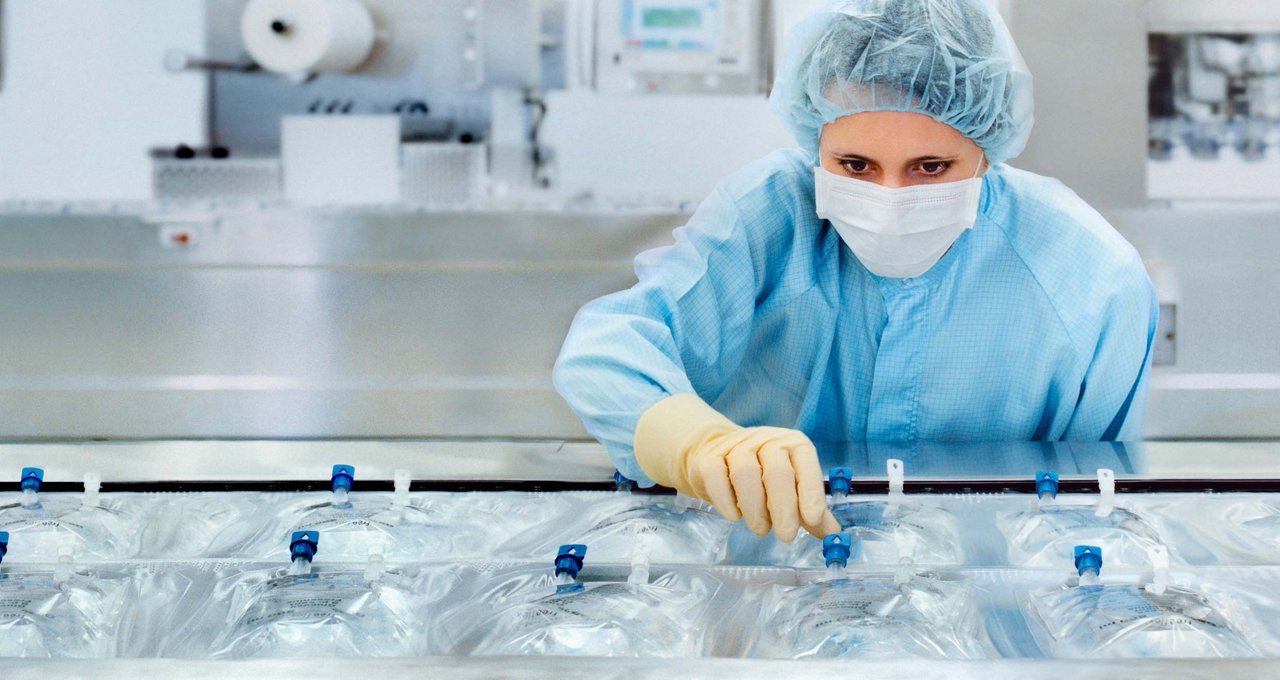Our Products & Services
How we link our business with the UN’s Sustainable Development Goals
Through our products and services, we provide access to safe and high-quality healthcare solutions while contributing to the economic development of our target markets.
Our portfolio is dedicated to SDG 3: health and well-being. We support this goal through a number of efforts:
We manufacture and provide products that help people with non-communicable diseases, like autoimmune diseases, and we work to increase awareness of their prevention and treatment. With our ready-to-use products, we offer convenient and safe solutions that are designed to prevent misuse. For example, our freeflex®+ infusion bag with a needle-free injection port helps to reduce injury risk in daily hospital routines. Additionally, we research and offer clinical nutritional products that help prevent malnutrition. These supplements also improve the chances of faster illness recovery. Our team is dedicated to providing access to medicine by developing and distributing biosimilars, which are cost-effective alternatives to originator products.
We support innovation and research with our decentralized organizational structure in different markets. Our investments promote local innovation and education in countries of varying economic backgrounds. These efforts help contribute to consistent, inclusive, and sustainable economic growth, as well as productive, decent employment for all.
Our environmental management works to minimize our environmental impact, achieve resource efficiency, engage with stakeholders, drive innovation, and ensure long-term business sustainability. Our aim is to implement the ISO 14001 international standard for environmental management at all our manufacturing plants worldwide by 2026*. We also have various global training programs for our employees to educate them on this priority. Further, we have developed plant-based nutrition products and blood bags with non-DEHP materials, for example.
Our quality management: ensuring patient safety & product quality
We hold our products and services to the strictest standards of quality and safety.
Quality management is a key factor, as it influences and monitors the applicability, efficacy, and safety of products and services, as well as the success of therapies and their continuous improvement. We ensure quality through the following systems:
- We have early warning systems and pharmacovigilance procedures to ensure the safety of our products and services.
- We have companywide standard operating procedures (SOPs) to continuously monitor the risk-benefit profile of our products and evaluate their implementation.
- We regularly evaluate safety-related information from various sources, like adverse event reports and medical literature, and submit the results to regulatory authorities.
- We promptly inform customers and the public about product and patient safety issues through direct communication or public relations channels.
We also regularly conduct internal quality audits to ensure the effectiveness of our quality management system. Suppliers undergo a qualification process. Any deficiencies identified by regulatory authorities, independent organizations, or customers are addressed by adequate measures.
Depending on the business area and market, we are subject to further specific regulatory requirements and standards. This includes standards legislation, like the Registration, Evaluation, Authorization, and Restriction of Chemicals (REACH).
We strive to broaden access to medicines – for as many as possible
We are committed to improving our patients’ quality of life, especially when they are critically or chronically ill. With our broad product portfolio, we provide access to modern, high-quality, and affordable therapies to the widest audience possible.
Here are just a few examples of our dedication to medical accessibility:
KabiConnect
In 2022, we launched KabiConnect, part of the KabiCare® Patient Assistance Program in the United States. KabiConnect provides financial assistance to eligible patients for more than 30 different generic oncology drugs, reducing out-of-pocket costs for eligible patients.
Fresenius Kabi and Cerus Corporation
In 2022, Fresenius Kabi and US company Cerus Corporation expanded their joint work on the production of medical devices for pathogen inactivation in blood components. Together, we are expanding access to pathogen-reduced blood components for patients.
Partnerships
We have partnered with Bio-Manguinhos/Fiocruz and Bionovis to provide access to an adalimumab biosimilar in Brazil. This partnership will expand treatment options in the Brazilian healthcare system for a range of autoimmune diseases.
We observe what is happening
We responded to the significant increase in worldwide demand for essential drugs and infusion technology for the treatment of COVID-19 patients.
For a global healthcare company that offers pharmaceuticals, nutrition, biopharmaceuticals, and MedTech products, digitalization and innovation are crucial. We develop digital applications for healthcare professionals and patients to support the quality of treatment and improve patient care. Additionally, we use digital solutions, such as track-and-trace systems, for product traceability that help hospitals to track inventory, for example. These systems use radio frequency identification (RFID) technology, known as smart labels, which enables hospitals to automatically identify, locate, and manage their inventories.
Fresenius Kabi also works on device solutions for interoperability between pumps, infusion systems, and hospital IT. Our main goal is to improve treatment efficiency and effectiveness while adhering to high cybersecurity standards.

